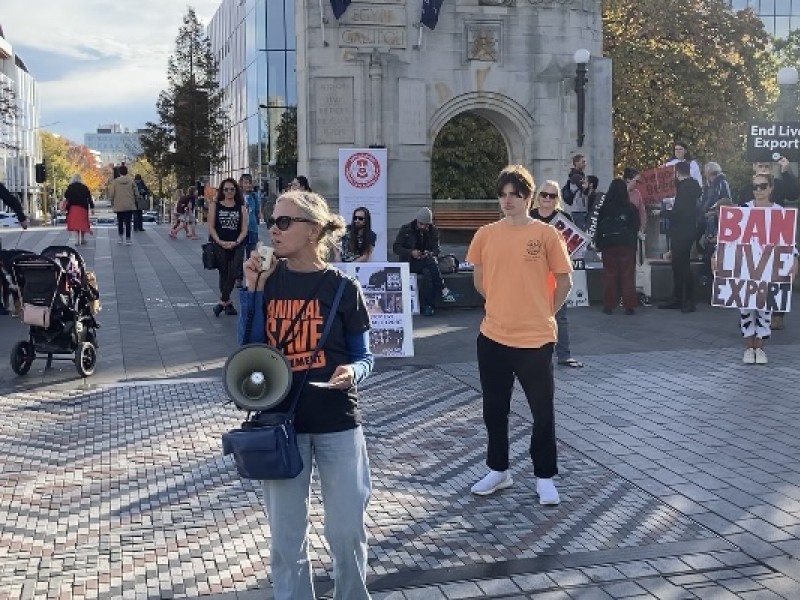Activists gathered at Oxford Terrace on Saturday with placards and costumes to rally for an advance on the ban on live exports.
Around 50 protesters marched through the streets of Christchurch, coming to a stop at the Bridge of Remembrance.
They started chanting, calling on people to sign their petition to stop live exports now, accelerating the ban.
Live exports are currently being phased out by the Government, to be fully banned by 2023.
But Abe O’Donnell of the UC NZ Animal Law Assocation said it wasn’t good enough and was putting animals' lives in danger for little to no benefit.
“These animals haven’t consented to going onto these ships. Unlike us, when we go on a cruise ship, they don’t have any space.”
He pointed to the sinking of the Gulf Livestock 1 boat as an example of the risks. The vessel capsized in the South China sea on September 2, leading to the deaths of 41 crew members and 5,867 cattle. Only two crew members survived.
Will Applebee from SAFE New Zealand said it was also damaging to New Zealand's reputation as a clean, green country where animal rights are valued.
He said the countries live stock were sent to had shocking track records in animal welfare, naming China in particular.
China doesn’t have a requirement to stun livestock before killing it – giving it a more humane death – which is the law in New Zealand.
“If we don’t do it here, why would we send it to a country that allows it?”

